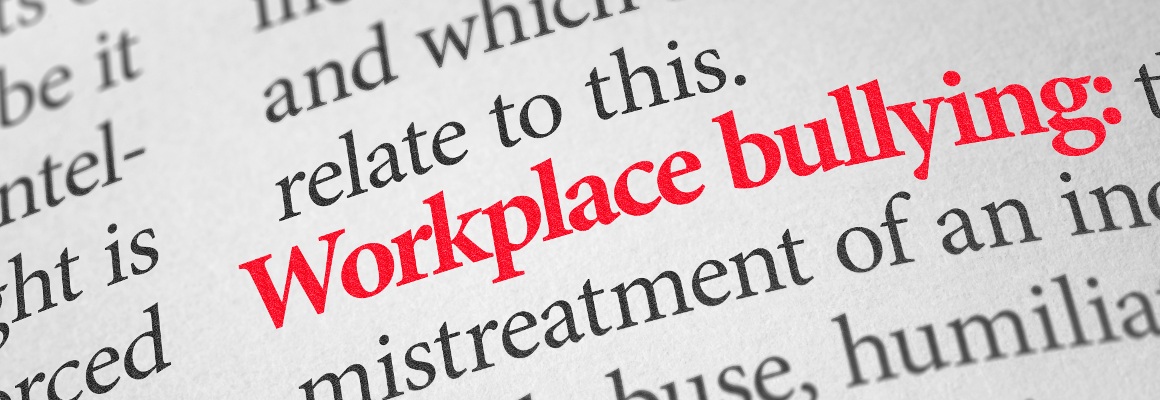New Legislation To Help Stop Bullying At Work
Nobody likes workplace bullies. They make their colleagues’ lives a misery. But it’s not just the immediate victims who suffer – the fallout is much wider than that.
Workplace bullies can cost their employers a great deal of time, money and productivity. Employers can be vicariously liable – legally responsible for the actions of their employees.
Bullying with race, sex, disability or other discriminatory overtones can be particularly costly. There is no limit on the compensation for discrimination.
So everyone who wants a happy and productive workplace has a vested interest in ensuring that bullying is stamped out.
And now there is new legislation which is hoped will do precisely that…
Bullying And Respect At Work Bill
The Bullying And Respect At Work Bill is currently going through Parliament. It has had its First Reading in the Commons and is due for its Second Reading on 24 November 2023.
Next would come the Commons Committee Stage, Report Stage and Third Reading before similar scrutiny in the House of Lords. The final stages would be consideration of amendments, then Royal Assent.
The legislation being debated is a Private Members’ Bill. It was introduced by York Central MP Rachael Maskell (Lab/Co-op) under the Ten-Minute Rule.
“My Bill will break the cycle of bullying at work. It will call to account those who abuse their power, while protecting others and, for the first time, provide a legal definition of bullying at work,” she said.
Bullying is the second biggest workplace issue, reports the TUC. Some 29% of workers will experience workplace bullying at some point. One in 10 has experienced it in the past six months. Acas puts the cost of workplace bullying to the UK at £28.5 billion.
Ms Maskell said: “Sometimes bullying is corporate, embedded in the culture of an organisation. Sometimes it is peer on peer, where workers are left out, denigrated publicly or privately, and targeted or ignored.
“Bullying hurts: it destroys confidence, crushes mental health and causes physical ill health. For some, the pain is so great that they simply crumble. There is lasting trauma; some never recover, and some lose their lives. The power of a human to destroy another is very real.”
Why The New Bill Is Needed
There are existing laws that cover the well-being of employees in the workplace. They include the Equality Act 2010 and the Health and Safety at Work Act 1974.
But there has never been an Act that addresses the issue of workplace bullying specifically. Campaigners argue that new legislation is needed because:
- Existing legislation may not explicitly define or cover all forms of workplace bullying – leaving gaps in protection for employees.
- There may be ambiguity in legal remedies – some victims may find it hard to prove they have been bullied. The burden of proof can be quite high in the current legal framework.
- New legislation can help to raise awareness of bullying and encourage a proactive approach to prevent it.
- The modern work environment – including remote working and online meetings – may present new challenges in addressing workplace bullying, necessitating updated legislation.
Effectiveness Of Existing Legislation
The existing legislation does provide some protection against workplace bullying, but there are criticisms about its effectiveness.
Furthermore, the current laws may not provide sufficient remedies for victims of workplace bullying. These remedies may be limited to financial compensation.
And some employees and employers may not be aware of their rights and obligations under existing legislation – leading to under-reporting and inadequate enforcement.
Limits Of The Equality Act 2010
The Equality Act 2010 focuses primarily on protecting individuals from discrimination based on protected characteristics.
These characteristics include age, disability, gender reassignment, marriage and civil partnership, pregnancy and maternity, race, religion or belief, sex or sexual orientation.
And while bullying may overlap with discrimination, it may not always be rooted in protected characteristics.
If the bullying falls outside these protected characteristics, the victim may not have recourse through the Equality Act.
Limits Of The Health and Safety at Work Act 1974
The Health and Safety at Work Act 1974 may not deal adequately with workplace bullying because:
- The Act focuses mainly on accidents, injuries and exposure to hazardous substances. Yes, the legislation sets out the duty of employers to ensure the health, safety and welfare of their employees and workers. But the Act may not deal specifically with the psychological and emotional harm caused by bullying at work.
- The Act does not define workplace bullying explicitly. Without a specific definition and recognition of workplace bullying as a health and safety issue, it can be challenging to enforce measures to stop it.
- Enforcement of the Act typically involves inspections, investigations and potential penalties for non-compliance. While workplace bullying can undoubtedly impact employees’ health and safety, proving and enforcing the legal obligations regarding psychological well-being can be complex.
- Remedies under the Act usually involve enforcement notices, improvement notices or prosecutions. These may not be sufficient to tackle the underlying causes of workplace bullying – or to provide adequate redress to the victims.
When Would The New Bullying And Respect At Work Bill Become Law?
Very few Private Member’s Bills become law – most fail. And those that do succeed do so only after months and years of campaigning and negotiating.
But that is no reason to dismiss the Bullying And Respect At Work Bill out of hand. Employers still need to consider what could happen.
Bills such as this publicise important causes. They can also affect legislation indirectly.
And never forget, this Bill could become law – with all the legal consequences, compliance requirements and enforcement that this entails.
So you need to consider its potential impact.
What Should Employers Do In The Meantime?
As an employer, you should proactively create a safe and respectful work environment:
- Develop and adopt a detailed and easy-to-understand anti-bullying policy. Define what constitutes bullying. Tell employees and workers how to report it. State emphatically that you will treat all complaints seriously and confidentially.
- Provide training so your teams can identify and prevent bullying. Create an environment where bullying is not tolerated.
- Make sure employees can report bullying without fear of retaliation. Encourage them to raise concerns with their managers or HR.
- Investigate alleged bullying and respond promptly. Investigate claims thoroughly. Take disciplinary action if bullying is confirmed. You may need to terminate the bully’s employment on disciplinary grounds. Find out more here.
- Support victims of bullying. Offer them counselling or employee assistance.
- Encourage managers to lead by example and demonstrate respectful and supportive behaviour towards their teams.
- Ensure your grievance and disciplinary procedures are robust, fair and transparent. Victims must be certain you will deal with their concerns effectively.
- Monitor your workplace continuously for evidence of bullying. Review the effectiveness of anti-bullying measures regularly.
- Ensure all employees are aware of the anti-bullying policy. Make sure they understand their rights and responsibilities.
- Promote teamwork, collaboration and mutual respect to create a positive workplace culture that discourages bullying.
And above all, get expert legal advice before acting. A quick phone call to one of our employment solicitors can help you to avoid unforeseen consequences.
How Can Victims Protect Themselves From Bullying In The Meantime?
There are plenty of steps you can take to protect yourself and seek assistance:
- Keep a comprehensive record of the bullying. Write down what happened; when and where it took place.
- Save any threatening messages or evidence of bullying as proof of your case.
- Report the bullying to your manager, HR or directors. Complain in writing (and keep a copy).
- Confide in trusted colleagues who may have witnessed the bullying. Their corroboration can strengthen your case.
- Get support from healthcare professionals or counsellors if you are suffering mental or physical health problems because of the bullying.
Again, speak with an employment law solicitor before acting – you don’t want to unwittingly say or do anything that could undermine your case.
Get Expert Legal Advice
Contact Coles Miller employment solicitor Hugh Reid for expert legal advice on how to deal with workplace bullying.
Hugh’s specialisms include disciplinary procedures, making employees redundant, constructive dismissal and unfair dismissal. He is based at our Poole town centre head office.






.webp)

